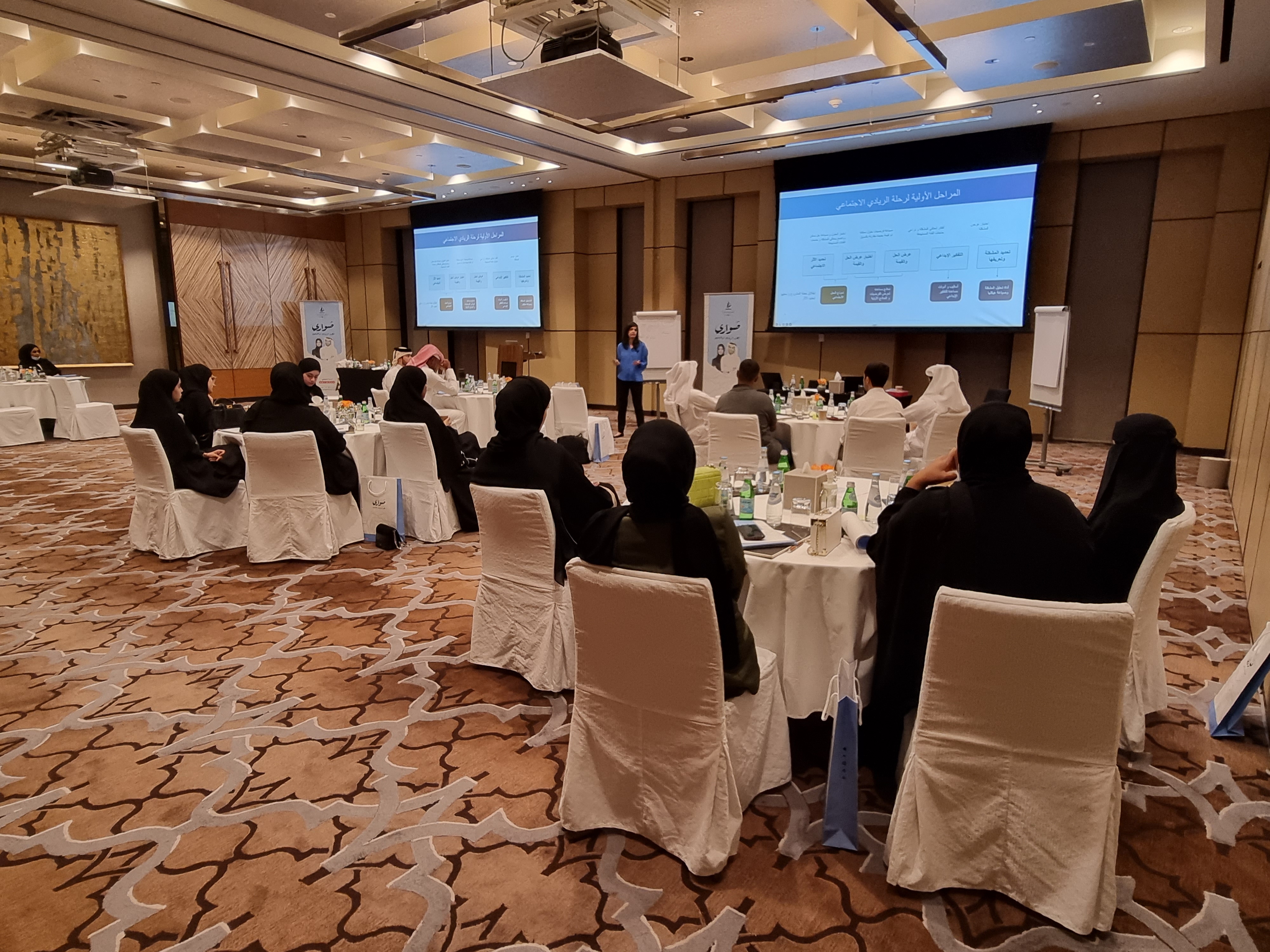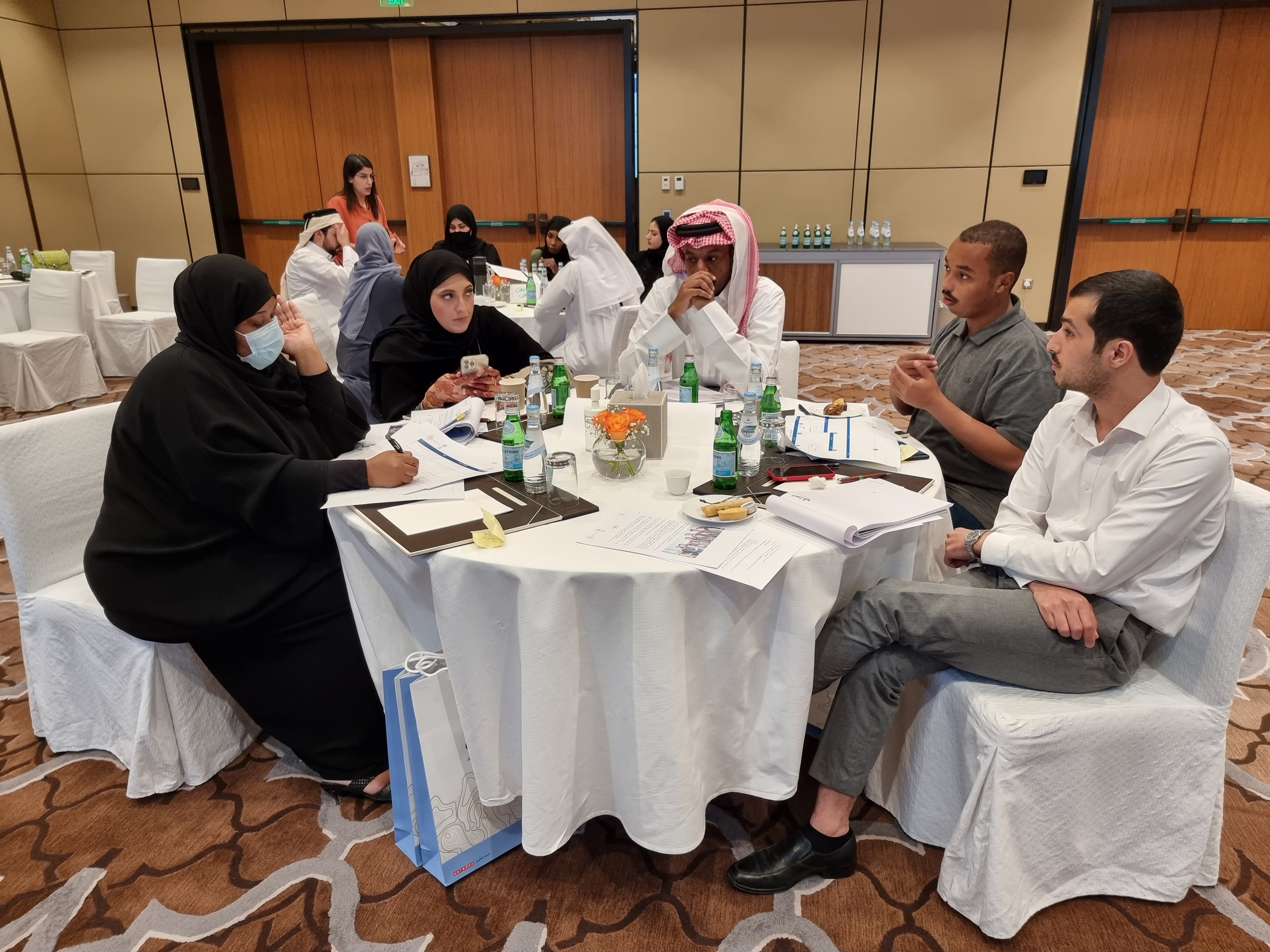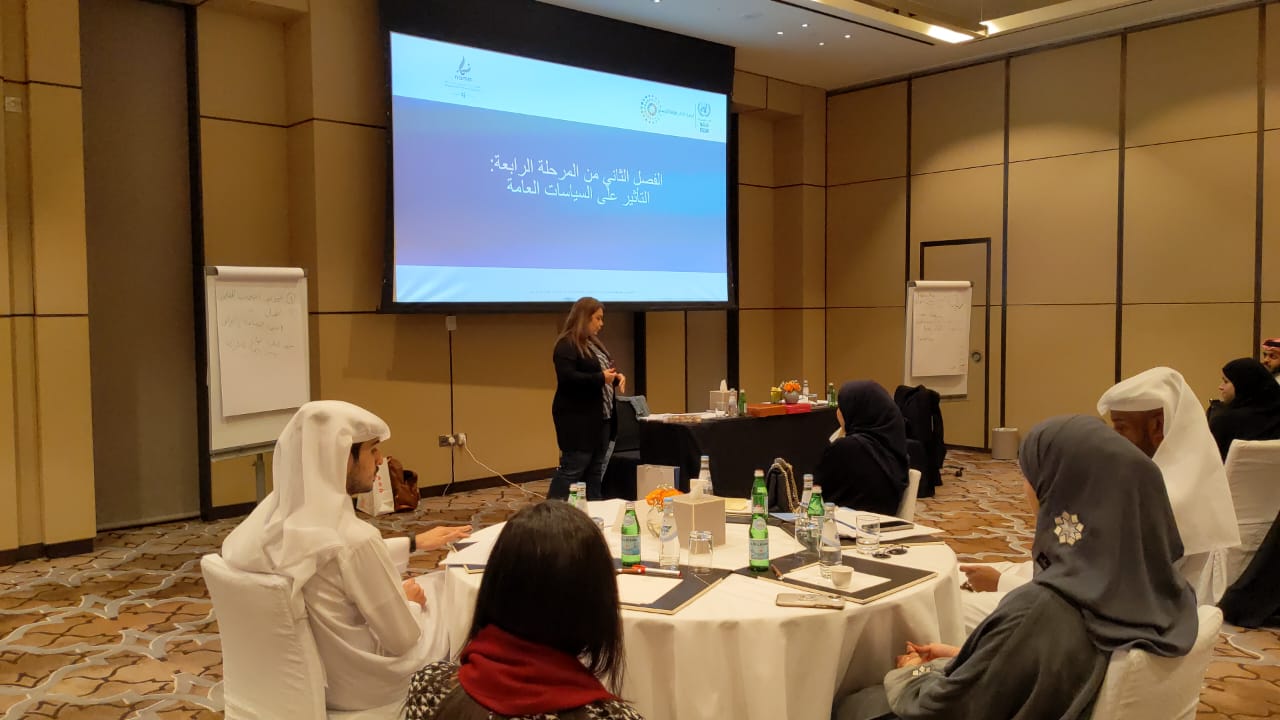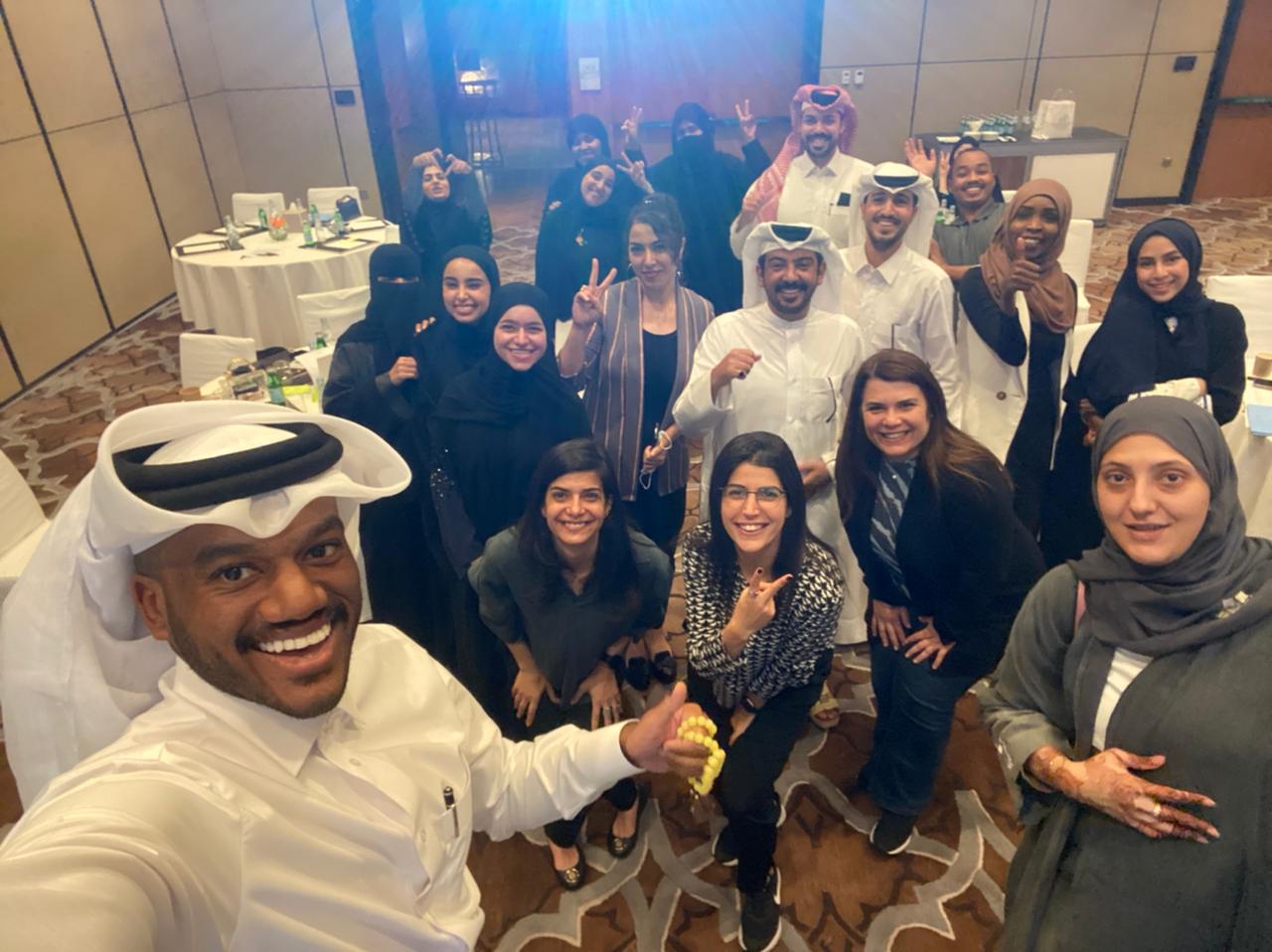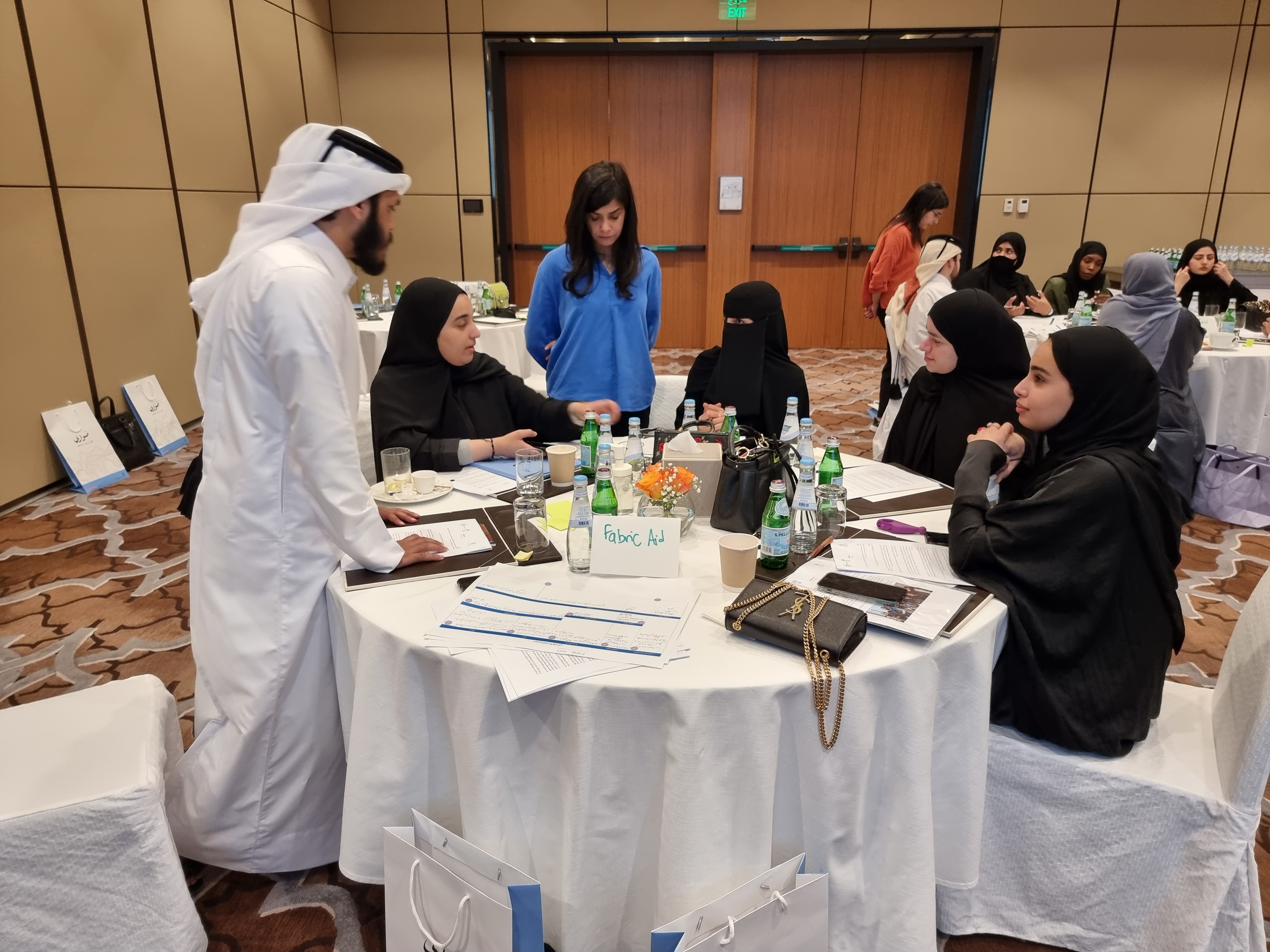This workshop is part of the series organized by ESCWA and the Social Development Center in Qatar (NAMA) within the project on Building the Capacities of Young Men and Women in Qatar in the area of Social Entrepreneurship.
The workshop targets the 22 participants trained in October 2021 on the first module of the Training Manual on Social Entrepreneurship - The Problem and Solution. They include prospective trainers who have been coached to initiate peer learning on the concept of social entrepreneurship during training sessions held in Qatar and online in November and December 2021.
The workshop resumes the remaining modules of the Manual and provides participants with the knowledge and tools required to navigate through stages 2, 3 and 4 of the social entrepreneur journey, including modules on Business Modelling, Project Growth and Disseminating the Solution. Each module addresses a different set of issues and skills that enable social entrepreneurs to develop a viable business model; target the consumers/users; mobilize talents and resources; measure the project impact; and scale up the solution and expand into new markets while maintaining the project value and quality control.
